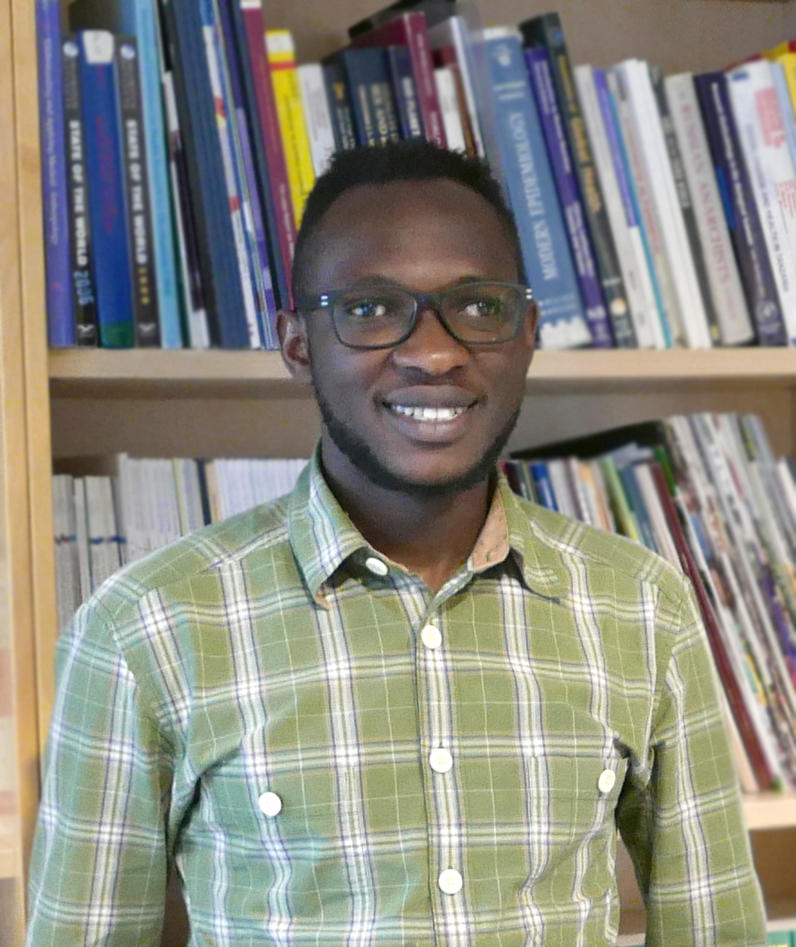Finding an SDG solution to a nutrition question
Theogene Habumugisha is one of the first UiB Global Challenges PhD Candidates. While Sustainable Development Goal (SDG) Goal 2, Zero Hunger, focuses entirely on hunger and global food and agriculture systems, many SDGs include a nutritional aspect. Habumugisha's project will use cross-Faculty approaches and a responsible research and innovation framework to address a theme within nutrition.

Main content
In 2018, the UiB strategy area, Global Challenges, allocated funding to promote inter-Faculty scientific cooperation in the form of PhD grants. Two PhD projects were selected. Habumugisha was selected to be the PhD Candidate to undertake one of the selected projects.
Proposed project description:
Nutrition policy and food systems recommendations anchored in the Sustainable Development Goals and Responsible Research and Innovation frameworks: Is that a possibility? Perspectives from nutrition, biology, and ethics
Global challenges are complex and difficult to manage. They involve considering many different traditional disciplinary approaches simultaneously. A specific example is the task of developing nutrition recommendations that incorporate sustainability, physical needs, production costs, labour conditions, animal welfare, toxicity, pharmaceutical dimensions and more. All these various factors interact and are affected when recommendations about any specific factor change.
Within nutrition, a current area of discussion is the long-term sustainability of land-based protein production including both plant-based and animal proteins. On the one hand, there is a need for increased protein consumption in populations suffering from undernutrition. On the other hand, there is an environmental cost to protein production. This “Global Challenges” PhD project will address the challenges associated with protein consumption and land-based protein production. It will evaluate the trade-offs between current nutrition recommendations and sustainable food production systems.
We propose to address this challenge using Responsible Research and Innovation (RRI), which is a recent and interesting approach to complex problem solving. This strategic approach is also used in EU research programmes.
This PhD project will involve a collaboration between three Faculties at UiB including 4 different scientific environments. It will establish a new collaboration between the different Faculties that demonstrates interdisciplinary at its best. Its aim is to use cross-disciplinary approaches to investigate how nutrition recommendations can be designed when considering food systems from the angles of health, biology, and ethics. The results will suggest a framework for guiding policy recommendations based on considerations of sustainable development.
Faculties of Medicine:
Centre for International Health; Professor Ingunn Marie S. Engebretsen (main supervisor) and
Centre for Nutrition; Professor Jutta Dierkes (co-supervisor)
Faculty of Mathematics and Natural Sciences:
Ecological and Environmental Change Research Group, Department of Biological Sciences (BIO); Associate Professor, UNESCO Chair on Sustainable Heritage and Environmental Management Inger Elisabeth Måren (co-supervisor)
Faculty of Humanities:
Centre for the Study of the Sciences and the Humanities; Professor and Head of Department Matthias Kaiser (co-supervisor)
Project update
We met with Habumugisha to see how his project is progressing. Habumugisha will be rotating through the different collaborating Faculties. However, he explained that his project will be primarily based in medical methodologies, where he will use both qualitative and quantitative approaches. His first paper will be a systematic review and meta-analysis to gain understanding of meat-reduced diets and their effects on nutrition status from a global perspective. The second and third papers are population-based studies where he will apply cross-sectional methodological design, which he hopes to carry out in his home country, Rwanda. Habumugisha explains that Rwanda is a unique research environment for carrying out such a study as animal raising (meat protein production) and farming (plant protein production) have changed significantly since the genocide against the Tutsi in 1994. Another fact that makes Rwanda as a unique case study for his project is the fast-growing economy and rapid urbanization, all occurring in the post-genocide era. He thinks that all these factors, and others, may influence dietary changes in his country. Research, such as his PhD project, is urgently needed to inform policy interventions.
Habumugisha did his undergraduate studies in Human Nutrition and Dietetics at the College of Medicine and Health Science, University of Rwanda. Prior moving to The Netherlands where he did his master’s in Nutrition and Health at Wageningen University, he worked in primary healthcare within a refugee camp, where he was in charge of the nutrition program. He is concerned that the COVID-19 pandemic will affect his ability to conduct field work, not only in terms of getting to Rwanda, but, once in the country, being able to travel freely out to communities to conduct his studies.
